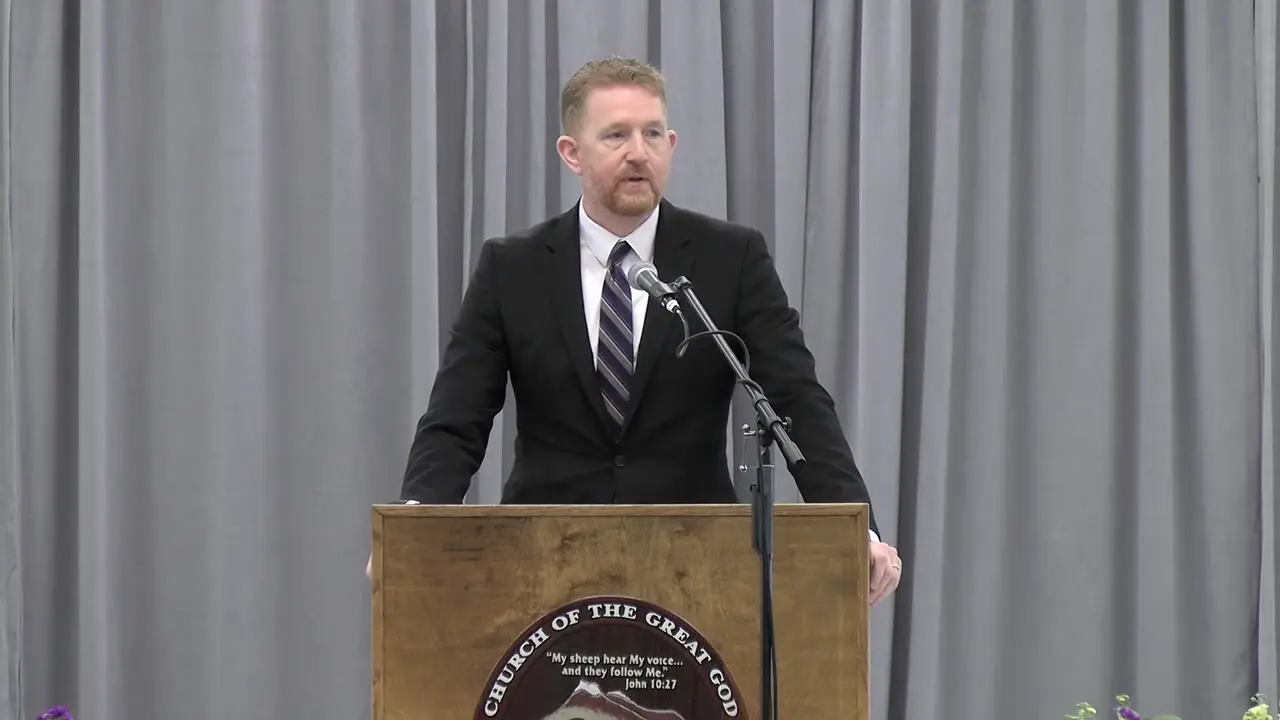Filter by Categories
Notes from the Trail
Sermonette by James C. StoertzAt the Feast of Tabernacles, we live in temporary dwellings, mirroring our temporary lives. Hiking and backpacking can teach us valuable things about this journey.
The Quest for Permanence
Sermonette by David F. MaasFasting brings our heart into alignment with God. The very best offering we can present is a humble and contrite heart, put on the fast track through fasting.
Vanity (Part 1)
Sermon by John W. RitenbaughVanity has many nuances, including transitoriness, futility, profitlessness, confusion, falseness, conceit, vainglory, denial, and idolatry.
Psalms: Book Four (Part One)
Feast of Tabernacles Sermon by Richard T. RitenbaughOnly 18 psalms—11.3%—apply to the fall holy days. Book IV of the Psalms align with Numbers in the Torah or Pentateuch, and Ecclesiastes in the Megilloth.
Commencement
Sermon by Richard T. RitenbaughGraduations bring advice-laden commencement speeches designed to inspire and motivate young people, sending them out to their destinations and destinies.
Numbering Our Days
Sermon by Richard T. RitenbaughWe must allow God to show us how to carefully number our days in order to gain a heart of wisdom and develop a godly perspective upon our remaining time.
Grass of the Field
Sermonette by Ronny H. GrahamIf physical life (symbolized by the grass of the earth) withers away, we who have been given the Word of the Lord will endure and thrive forever.
Vanity (Part 2)
Sermon by John W. RitenbaughSolomon's statement that all of life is vanity is only true if one is not privy to God's ultimate purpose for mankind. Paul describes what God is doing.

The Feasts of Tabernacles and Unleavened Bread
Feast of Tabernacles Sermon by David C. GrabbeIn this message, we learn the divine wisdom and unity within Almighty God's festivals (Leviticus 23) showing how each feast reveals His character, plan, and purpose for humankind. The speaker, using the method of comparison and contrast, exposes a chiastic structure or mirrored design connecting the spring and fall festivals, particularly Unleavened Bread and Tabernacles, both centering on deliverance, dwelling, and dependence on God, forming a complete picture of salvation through Christ. The pattern of one day followed by seven (Passover/Unleavened Bread) and seven days followed by one (Tabernacles/Last Great Day) symbolized the perfection and symmetry of His redemptive plan. Unleavened Bread focuses upon cleansing, sincerity, and feeding on Christ, the Bread of Life. Consequently, when we remove food from our dwellings, we purify every sphere of authority under God, thereby building a stable spiritual house upon Christ. Tabernacles, in contrast, emphasizes impermanence and humility, dwelling in temporary booths, reminding us of our dependence on God's daily provision in the wilderness. Together the permanence of houses and the transience of booths teach us that true security lies not in possessions or comfort but in Almighty God's sustaining presence. The physical symbols of food and dwelling illustrate some divine paradoxes. During Unleavened Bread, food lacks leaven—self-sufficiency and sin—but during Tabernacles, housing lacks permanence—worldly security and control. Through abundance and lack, permanence and transience, God's people learn to dwell in His presence, feed on His Word, and trust His timing.
The Millennium and Union With Christ
Feast of Tabernacles Sermon by Richard T. RitenbaughThe millennial situation will resemble the behavior of our forebears; it will be our responsibility to lead them to hope, joy, character, and faith in God.
Prepare to Teach
Feast of Tabernacles Sermon by Martin G. CollinsWe will be kings and priests, responsible for those coming out of the tribulation. We must prepare now to fill the entire earth with the knowledge of God.
The Unshakable Kingdom!
Sermon by Martin G. CollinsBecause all things will be violently shaken, God commands His people to place their trust in the unshakeable Kingdom of God which will displace all empires.

Foundations of Sand
Sermon by Richard T. RitenbaughWe all have a measure of sand in our foundations, symbolic of the world's evil standards, prioritizing badly, becoming neglectful, and letting things slip.
Let's Get Real!
Sermon by Richard T. RitenbaughWe exist as imperfect shadows of God. As we follow the example of Christ, the real Light that reveals God's way, we also move from shadow to reality.